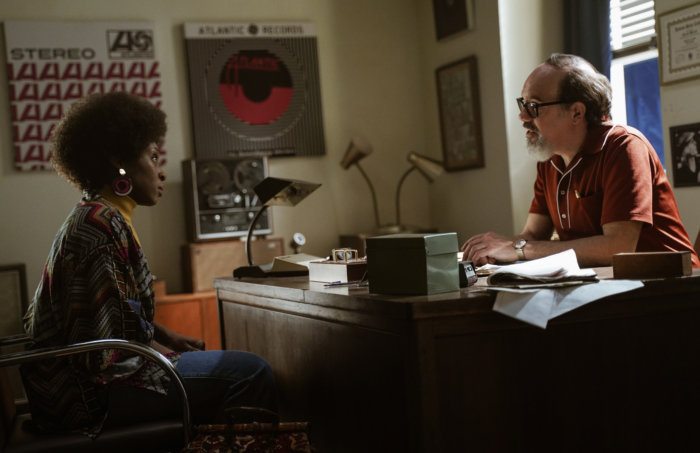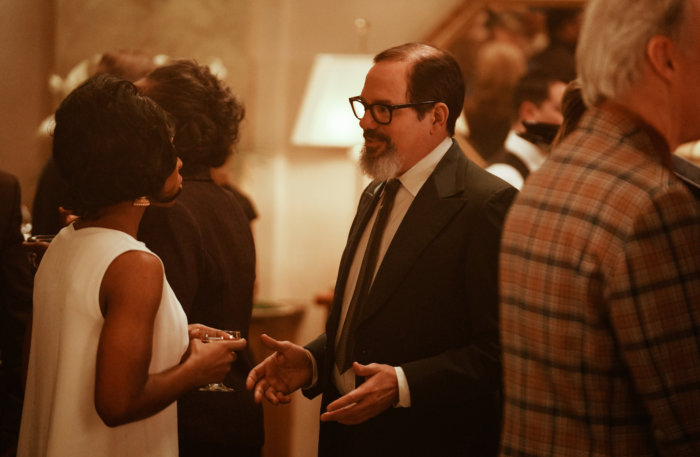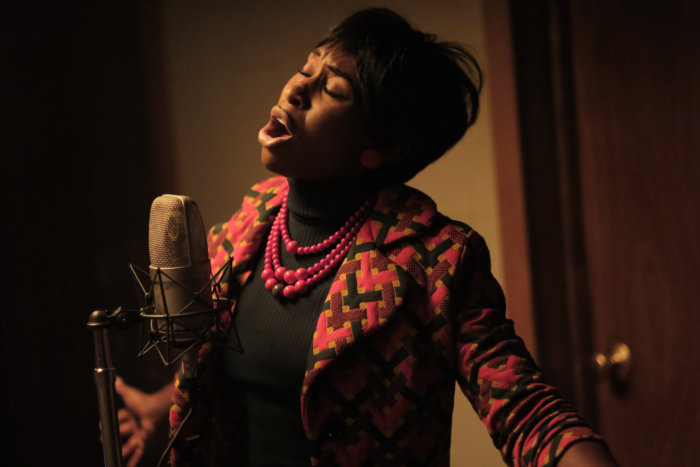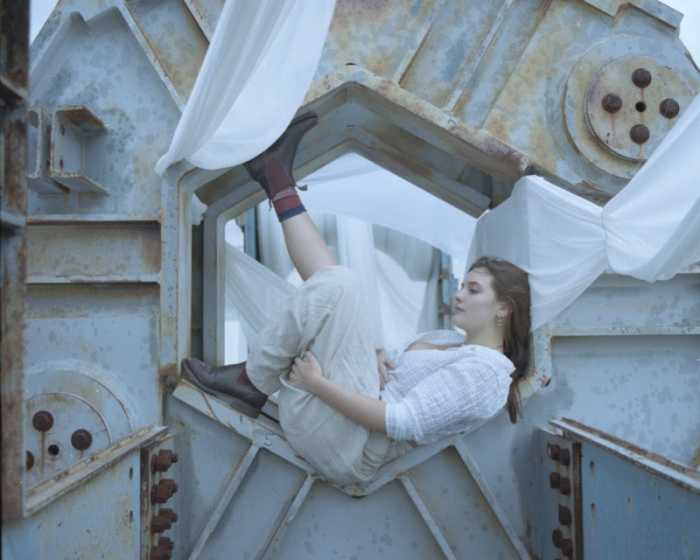By Molly Given
National Geographic’s ‘Genius’ series has already tackled some significant characters in history (Einstein played by Geoffrey Rush and Pablo Picasso played by Antonio Banderas), but their third installment of the series highlighting Aretha Franklin (played by Cynthia Erivo) may be their most timely—even when looking to the past.
‘Genius: Aretha’ showcases the cultural sensation that was The Queen of Soul. What the show also shines a light on is the story of the songstress that went much deeper than the headlines… One that shows a more personal side to Franklin and what she stood for both as a woman and as a social activist. Along with Franklin, the third season of Nat Geo’s series also showcases some of the names who helped her forge her path, including legendary music journalist and producer Jerry Wexler, played by David Cross. Cross who is typically seen in more comedic roles took on the iconic music maker, and brought his relationship with Franklin alive on screen—and it’s one that made history beyond the beats.
Cross dives deeper into his role for ‘Genius: Aretha,’ and what he learned about her journey and those around her, beyond what is reported.

What was it about this project that intrigued you and made you want to sign on?
It was an opportunity I don’t get to do that often—to do something that isn’t necessarily broadly comedic and to play a character based on a real person that over six episodes evolves, and who has a relationship with this other person that spans decades and decades. Also, on a smaller but no less important part, getting to help tell that story of Aretha Franklin.
Did you do any research in particular to prepare for your role of Jerry Wexler?
There’s a limited amount of video/audio stuff from his early years, but there is some. Production is good about getting me as much as they could get their hands on, there’s [also] an autobiography that I read. Then of course, the later interviews when he is much older. I also was able to talk with his last wife, his third, who was very, very helpful. She gave me photos and was awesome to speak with.
After getting to learn about Wexler, what do you like about him? What attributes did you really want to come out for your portrayal of his character?
Well, he was a very nurturing guy….He’s kind of a genius in his own right. He worked not just with Aretha Franklin, but Ray Charles all the way up to the Dire Straits—he had quite the run of helping artists find their sound and turning them into the artists that we now know. He had that really great quality of knowing when to push, when to hold back, when to be nurturing and when to be tough. What he did is pretty phenomenal and hasn’t been done a whole lot, because he’s also a mentor and a manager and a father figure. He was a liaison between not just a woman in the ’60s, but an African American woman in the ’60s to all of the people in the industry who tend to be misogynistic and sexist and even racist.
How does Wexler and Franklin’s relationship evolve over the series?
It grows to where they’re certainly more comfortable around each other and when they’re talking to each other. In the later years, there are more shortcuts just like anybody would have with a friend or family member or partner as time goes on. You start being able to fill in the gaps as they were. So, the relationship… It’s formal at first and then less formal as it moves along.

What was it like getting to film the scenes in the recording studios where the magic of the music happened?
That was actually educational. I didn’t know any of the intricacies or details about Aretha Franklin’s life going into the project. I knew what the average person knows, [but] I didn’t have an understanding of how instrumental she was to getting the songs that we all know and don’t think about, and just changing them and kind of inventing new music to make it right for her. I’m talking about her own compositions as well as other people’s compositions. She would be conducting the session players, and if she had chosen to be a producer, she probably would have been an amazing producer. She had that much talent. So, that was really cool to witness.
Was there anything else about Aretha Franklin’s life that stood out to you?
I didn’t know how socially active she was…I knew that she was somewhat socially active, but again, I know the kind of headline aspects of it. I didn’t know how deeply she had gone into that world.
How was it getting to work with Cynthia Erivo as Aretha Franklin?
It was great—the first scene that we shot of everything was her singing in the recording booth, and I’m up there with Ted White played by Malcolm Barrett. I had never heard Cynthia sing [and] I wasn’t really that familiar with her work, [but] she may have the best voice on the planet. It’s ridiculous. She’s a really powerful and amazing singer. Getting to hear her sing those songs over and over again and repeatedly—it was a treat, we were lucky we got these mini-shows almost everyday.

What do you hope audiences can take away from the series?
I hope this is inspiring and they learn something and they’re entertained as that whole process unfolds.
‘Genius: Aretha’ premieres is now available on National Geographic.
This article first appeared on out sister site, www.philly.metro.us


































